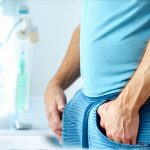The modern weekend often feels like a sprint – a concentrated burst of activity designed to recharge us for the week ahead. But this very ‘recharge’ can ironically place significant stress on our bodies, particularly our urological system. Many common weekend habits – increased alcohol consumption, dehydration from outdoor activities, dietary shifts including richer foods, and even prolonged sitting during leisure time – can all contribute to imbalances that impact bladder health, kidney function, and overall urinary well-being. Recognizing this is the first step toward proactive support. This article will explore strategies for ‘weekend recovery’ focused on nurturing your urological system, not simply bouncing back from perceived excesses but building resilience for consistent health.
It’s important to understand that the urological system isn’t just about avoiding immediate discomfort; it’s fundamentally linked to overall wellness. The kidneys filter toxins, maintaining fluid balance and blood pressure regulation. The bladder stores urine and signals when emptying is needed. A healthy urological system supports everything from energy levels to cognitive function. Weekend recovery isn’t about deprivation or strict rules but rather a mindful approach that acknowledges the demands placed on these vital organs and incorporates simple steps to support their natural functions. It’s about integrating habits that promote long-term health, not just reactively addressing weekend impacts.
Hydration Strategies for Urological Health
Dehydration is arguably the biggest culprit when it comes to weekend urological stress. Increased physical activity – hiking, biking, sports – coupled with warmer weather and often inadequate fluid intake creates a perfect storm. Alcohol consumption further exacerbates this, as alcohol is a diuretic, meaning it increases urine production and contributes to fluid loss. Simply drinking more water isn’t always enough; strategic hydration throughout the weekend, and during recovery, is key. Focus on consistent sipping rather than large gulps, and choose hydrating beverages beyond just plain water.
Beyond water, consider incorporating electrolyte-rich fluids – coconut water, diluted fruit juices (avoiding excessive sugar), or even homemade electrolyte solutions – to replenish minerals lost through sweat and diuretic effects. Herbal teas like dandelion root tea can also gently support kidney function due to their mild diuretic properties, but should be consumed in moderation. Importantly, timing matters too. Avoid drinking large amounts of fluids right before bed to minimize nighttime disruptions to sleep and bladder control. A proactive hydration plan is far more effective than trying to rehydrate after feeling thirsty or experiencing symptoms of dehydration. You can explore other **hydration strategies for urological system recovery** to further enhance your well-being.
Prioritize consistent fluid intake throughout the weekend and beyond. Aim for a pale yellow urine color as an indicator of adequate hydration. Remember that individual needs vary based on activity level, climate, and personal physiology – listen to your body’s signals and adjust accordingly. A good starting point is aiming for half your body weight in ounces of water daily, but increase this substantially if you are active or exposed to heat.
Dietary Considerations for Urological Support
Diet plays a significant role in urological health, influencing everything from kidney stone formation to bladder irritation. Weekend diets often deviate significantly from weekday routines, with increased intake of processed foods, sugary drinks, and alcohol. Reintroducing balance during the recovery period can make a substantial difference. Focus on incorporating foods that actively support kidney function and minimize inflammation.
- Fruits & Vegetables: Berries (cranberries are traditionally associated with urinary tract health), watermelon (hydrating), cucumbers (high water content), and leafy greens provide essential vitamins, minerals, and antioxidants.
- Lean Proteins: Support overall body repair and don’t overly burden the kidneys like excessive red meat can. Fish, poultry, or plant-based proteins are excellent choices.
- Healthy Fats: Omega-3 fatty acids found in fish oil or flaxseeds have anti-inflammatory properties that may benefit urological health.
Avoid excessive consumption of:
– Oxalates (found in spinach, rhubarb, nuts) – can contribute to kidney stone formation in susceptible individuals. Moderation is key.
– Sugary drinks and processed foods – offer little nutritional value and can exacerbate inflammation.
– Excessive caffeine – a diuretic that can dehydrate the system.
Considering **post-flare diet tips for faster urological recovery** can also help minimize irritation during this period of rebalancing your system.
Restorative Practices & Pelvic Floor Health
Weekend recovery isn’t just about what you consume; it’s also about how you rest and support your body physically. Prolonged sitting, even during enjoyable activities like watching movies or playing video games, can put pressure on the pelvic floor muscles, impacting bladder control and overall urinary function. Incorporating restorative practices into your weekend recovery routine is vital.
- Gentle Movement: Avoid intense workouts immediately after a busy weekend. Opt for low-impact exercises like walking, yoga, or stretching to promote circulation and reduce muscle tension.
- Pelvic Floor Exercises (Kegels): Strengthening these muscles can improve bladder control and support overall urinary health. Perform Kegel exercises several times a day – contract the muscles as if stopping urination midstream, hold for a few seconds, and release.
- Mindful Relaxation: Stress significantly impacts the urological system. Incorporate stress-reducing techniques like deep breathing exercises, meditation, or spending time in nature to calm the nervous system and promote overall well-being.
Prioritizing rest and mindful movement allows your body to recover from weekend exertion and rebuild resilience. Remember that consistent self-care is more beneficial than sporadic attempts at ‘detoxes’ or extreme measures. A balanced approach focusing on hydration, nutrition, restorative practices, and pelvic floor health will contribute significantly to long-term urological wellness.
Sleep Optimization for System Repair
Adequate sleep is often the first thing sacrificed during a busy weekend – late nights, social events, and early mornings can disrupt sleep patterns. However, sleep is crucial for the body’s natural repair processes, including those within the urological system. During sleep, the kidneys work to filter toxins and regulate fluid balance, while the bladder relaxes and recovers. Chronic sleep deprivation weakens these functions, making you more susceptible to imbalances.
Aim for 7-9 hours of quality sleep each night during your recovery period. Create a relaxing bedtime routine – dimming lights, avoiding screens at least an hour before bed, and practicing relaxation techniques can all improve sleep quality. Consider limiting caffeine and alcohol consumption in the evening, as these substances can interfere with sleep patterns. A consistent sleep schedule, even on weekends, helps regulate your body’s natural circadian rhythm and promotes optimal recovery.
Learning **how to use sleep cues for urological recovery** can significantly improve your ability to rest and restore vital functions. It’s also helpful to remember that a supportive **home environment tips for gentle urological support** contributes to better sleep quality. Furthermore, ensuring you have access to **best hydrating herbs for daily urology support** will help your body recover.
Prioritize restorative sleep to allow your urological system – and your entire body – to effectively repair and rebuild. Remember that sleep is not a luxury; it’s a fundamental necessity for maintaining overall health and well-being. A well-rested body is better equipped to handle the demands of everyday life, including those placed on the urological system during busy weekends.
To further support your recovery, consider incorporating **best hydrating herbs for daily urology support** into your routine.





















